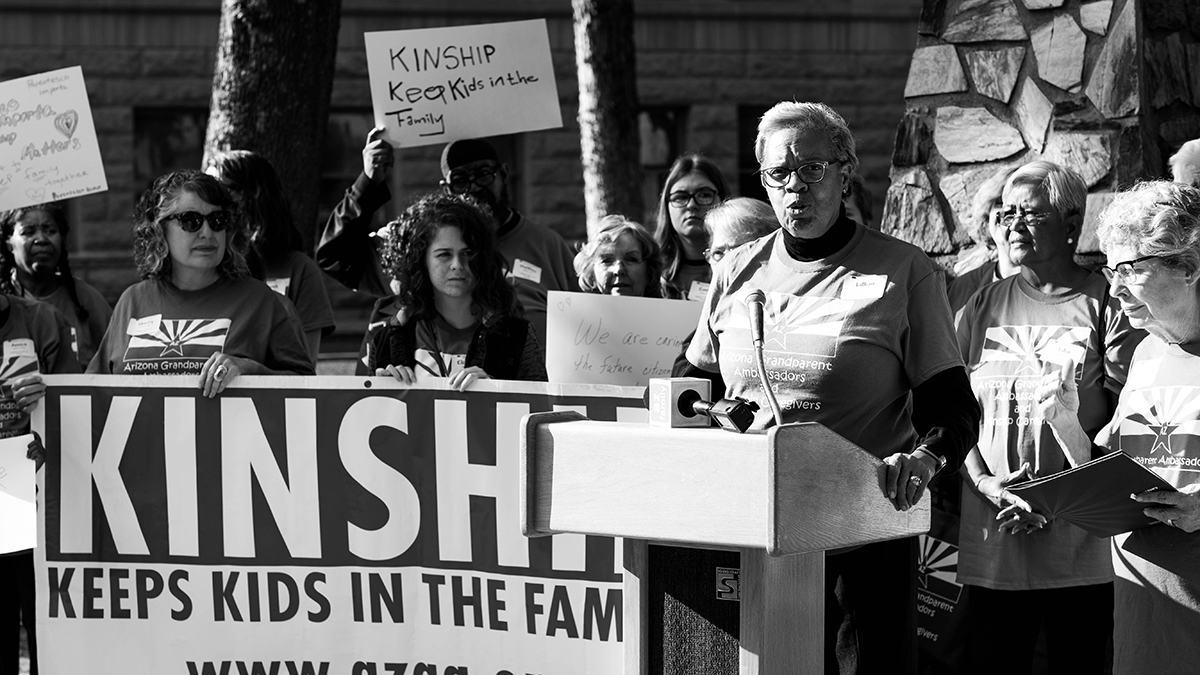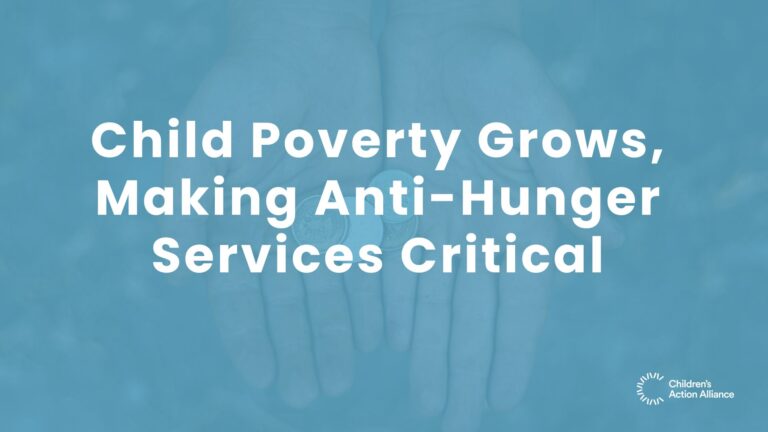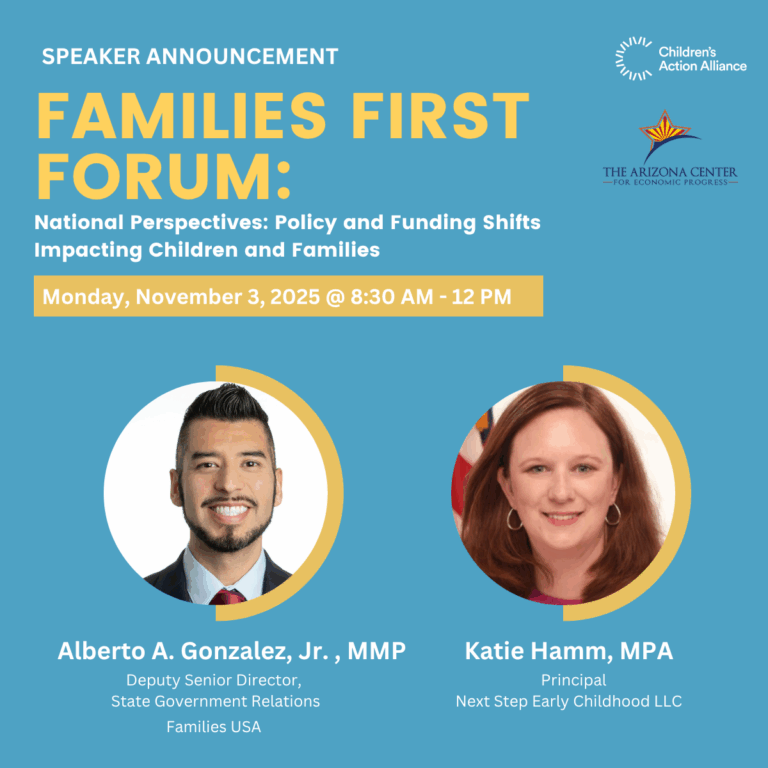
Kinship Keeps Kids In The Family
Over 75 members of Arizona Grandparent Ambassadors (AZGA), a statewide network of grandparents who are raising their grandchildren and other kinship caregivers, hosted their annual Day at the Capitol on Monday, February 10, 2020.
Grandparents kicked off the event by delivering “Cookies from Grandma” to lawmakers, followed by a press conference to highlight their legislative priorities of improving financial supports for kinship caregivers. Legislative priorities were decided at last year’s annual AZGA Summit by grandparents and kinship caregivers. Their priorities include:
- Prevent kids from coming into the system. Support for non-DCS kinship families with court-ordered placements.
- SB1569 sponsored by Senator Kate Brophy McGee
- Increase financial supports for DCS kinship families. Streamline TANF for eligible DCS children.
- SB1323 sponsored by Senator Kate Brophy McGee
- Increase financial supports for DCS kinship families. Increase the kinship stipend.
- SB1315 sponsored by Representative Lela Alston
Senators Lela Alston and Kate Brophy McGee stood together and applauded the grandmas’ efforts from the Senate floor, stating “supporting kinship care just makes sense.” From first-time attendees to seasoned advocates, grandparents and kinship caregivers worked together and all left with a feeling of hope that their priorities will become a reality for kinship caregivers statewide. Learn more about the Arizona Grandparent Ambassadors and how to get involved at AZGA.ORG.



